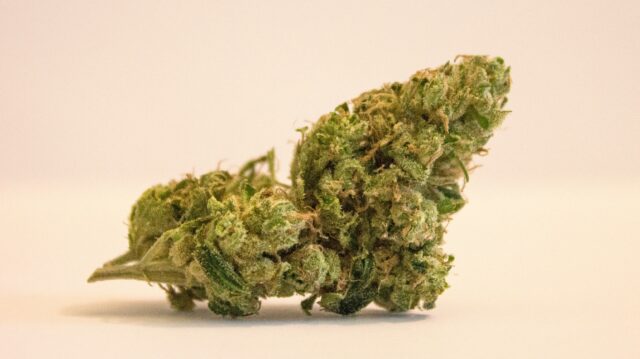Recognizing THCA
THCA is a non-psychoactive forerunner to THC (tetrahydrocannabinol), the compound responsible for the blissful results typically related to marijuana. Unlike THC, thca flowers does not generate drunkenness when consumed in its raw form. Rather, it supplies a variety of possible therapeutic benefits, consisting of anti-inflammatory, neuroprotective, and anti-emetic homes.
The Rise of THCA Flowers
Traditionally, cannabis intake has focused on THC-rich strains for leisure and medicinal functions. Nevertheless, the current studies right into the healing possibility of THCA have sparked a passion for growing marijuana ranges particularly reproduced to maximize THCA content. These pressures, often referred to as THCA flowers, are meticulously cultivated to preserve the stability of the THCA particle through specialized growing techniques.
Genetics
The foundation of cultivating high-quality THCA flowers depends on picking the best genes. Different cannabis strains exhibit differing levels of THCA production, with some being genetically inclined to generate greater concentrations of this cannabinoid. Farmers frequently pick strains recognized for their high THCA content, such as Wedding Event Cake, Mimosa, or Purple Punch. Additionally, picking steady genes with preferable characteristics such as disease resistance, strenuous growth, and ideal blooming times can add to effective cultivation.
Environmental Problems
Developing an ideal growing setting is essential for taking full advantage of THCA manufacturing. Cannabis plants prosper in details conditions, including temperature, humidity, light, and airflow. Interior farming allows cultivators to have exact control over these ecological aspects, making certain constant and high-grade flower production. Keeping temperatures between 70-85 ° F( 21-29 ° C) throughout the day and a little reduced during the night, together with family member moisture levels of 40-60%, fosters healthy and balanced plant development and THCA development.
The Endocannabinoid System
To understand the role of THCA flowers in integrative medical care, it’s essential to comprehend the endocannabinoid system (ECS). The ECS is a complicated network of receptors, enzymes, and endocannabinoids found throughout the body, regulating various physical processes, such as discomfort experience, mood, hunger, and immune features. Both THC and THCA communicate with the ECS, albeit with different mechanisms, influencing its task and potentially adding to healing effects.
Potential Benefits of THCA Flowers
The study suggests that THCA might supply numerous wellness advantages, making it an encouraging candidate for integrative healthcare techniques. Some prospective benefits of THCA flowers consist of:
Anti-Inflammatory Characteristics: THCA exhibits powerful anti-inflammatory properties, which could be advantageous in managing conditions identified by swelling, such as joint inflammation and inflammatory bowel conditions.
Neuroprotective Impacts: THCA reveals assurance in securing neurons from damage, potentially offering restorative benefits in neurodegenerative illnesses like Alzheimer’s and Parkinson’s.
Anti-Nausea and Hunger Excitement: THCA helps alleviate nausea or vomiting and promote appetite, making it useful for individuals undergoing radiation treatment or dealing with craving loss due to various other clinical conditions.
Pain Monitoring: Initial research recommends that THCA may have analgesic properties, providing relief from pain connected with various problems, including neuropathy and chronic pain syndromes.
Applications in Integrative Medical Care Practices
Integrative healthcare specialists are progressively incorporating THCA flowers into their therapy procedures, identifying their perspective to complement conventional therapies and promote holistic wellness. Some ways in which THCA flowers are being made use of in integrative healthcare include:
Discomfort Administration: THCA flowers might be used as part of a thorough discomfort monitoring plan, either alone or with various other treatments, to assist in minimizing pain and enhancing lifestyle for patients with persistent pain conditions.
Anti-Inflammatory Treatment: An integrative doctor may suggest THCA flowers as a natural anti-inflammatory remedy for problems such as joint inflammation, fibromyalgia, and autoimmune disorders, helping to lower inflammation and related signs and symptoms.
Supportive Care in Cancer Cells Treatment: THCA flowers may play an encouraging role in cancer care by alleviating chemotherapy-induced nausea and promoting appetite, thereby boosting clients’ overall comfort and nutritional consumption during therapy.
Mood Law: Some people may benefit from the mood-regulating effects of THCA, particularly those struggling with anxiousness, clinical depression, or mood conditions. Integrative approaches that incorporate THCA flowers, therapy, and various other interventions may provide thorough assistance for psychological well-being.
Considerations and Precautions
While THCA flowers hold promise as a therapeutic agent in integrative medical care practices, they must be used with care and awareness. Below are some considerations and safety measures to keep in mind:
Legal and Regulatory Factors To Consider: The legal standing of cannabis and cannabis-derived products, consisting of THCA flowers, varies by territory. Individuals and healthcare providers should familiarize themselves with relevant regulations and policies regulating their use.
Quality and Purity: Ensuring the quality and purity of THCA flowers is critical. Individuals should seek items from respectable resources that adhere to rigorous quality assurance criteria and undertake third-party testing for potency and impurities.
Dosage and Management: Figuring out the ideal dose and management technique for THCA flowers requires careful consideration of individual elements such as age, weight, medical history, and sensitivity to cannabinoids. Consulting with an educated doctor is advisable to create a tailored treatment plan.
Potential Medication Interactions: THCA may connect with certain medications, particularly those metabolized by the liver enzymes CYP2C9 and CYP3A4. People must disclose their marijuana usage to doctors to alleviate the risk of unfavorable interactions.
Final thought
THCA flowers stand as a remarkable method for expedition in integrative health care techniques. With their prospective anti-inflammatory, neuroprotective, and symptom-relieving homes, THCA flowers offer an all-natural strategy for wellness that aligns with the principles of integrative medicine. Nevertheless, further research is needed to fully comprehend their activity devices, optimal dosing methods, and lasting safety account. By embracing evidence-based integrative methods that incorporate THCA flowers alongside conventional treatments, doctors can encourage individuals to attain optimum health, wellness, and wellness, attending to the complicated interplay of physical, emotional, and spiritual elements of recovery.
